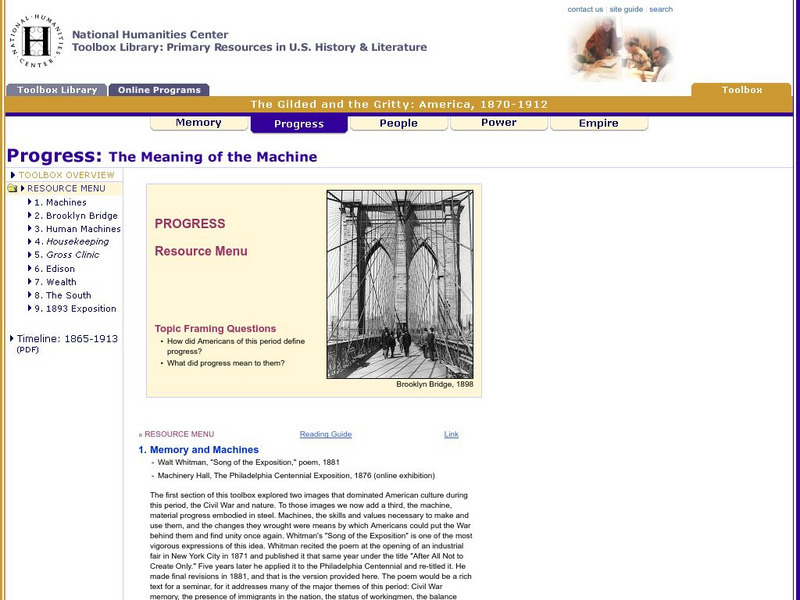Rutherford B. Hayes Presidential Library & Museum
United States Indian Policy During the Late 19th Century: Change and Continuity
By the 1890's, the status of Indian people seemed to validate Frederick Jackson Turner's claim that "the frontier has gone, and with its going has closed the first period of American history." Natives ceased to threaten the Republic...
Other
American Indian Civics Project: 19th Century Indian Relations
This article provides an overview of Indian relations within the United States during the 19th century.
Other
Federal Indian Policy: Bureaucrats or Bullets?
The making of federal Indian policy in the United States during the 19th century was marked by disagreement among all parties. The areas of disagreement that stood out most were (1) What is the legal/constitutional status of Indians and...
National Humanities Center
National Humanities Center: Toolbox Library: Progress, the Gilded and the Gritty: America, 1870 1912
Eighteen primary sources-historical documents, literary texts, and visual images-that explore the industrial, racial, and technological progress of the late-nineteenth century.
Pennsylvania Historical and Museum Comission
Explore Pa History: Mary Cassatt
A concise biographical sketch that examines the life and contributions of nineteenth century impressionist and Pennsylvania native, Mary Cassatt.
Bartleby
Bartleby.com: Cambridge History of Eng and Am Lit: Henry W Longfellow's Youth
Detailed biographical information about Longfellow's youth and early education. Discusses the influence of his native Maine. Describes Longfellow's first publication, at the age of 13, in a local newspaper.
A&E Television
History.com: 10 Things You May Not Know About Sitting Bull
Get the facts about one of the most legendary Native Americans of the 19th century. Sitting Bull was born around 1831 into the Hunkpapa people, a Lakota Sioux tribe that roamed the Great Plains in what is now the Dakotas.




